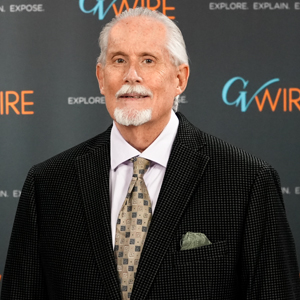Share
PYEONGTAEK, South Korea — A U.S. military plane left from Osan Air Base for North Korea on Friday to pick up the remains of what are believed to be U.S. servicemen killed during the Korean War, South Korea’s Yonhap news agency reported.
The U.S. military and South Korean government couldn’t immediately confirm the report, which was based on an unnamed South Korean government source. But there were signs Friday morning of preparations to receive the remains at the base south of Seoul.
If a transfer takes place, Pyongyang will likely return about 55 sets of remains from the 1950-53 Korean War, a step meant to fulfill a commitment made by leader Kim Jong Un during his summit with President Donald Trump in June.
7,700 American MIAs From Korean War
About 7,700 U.S. soldiers are listed as missing from the Korean War, and 5,300 of the remains are believed to still be in North Korea. The war killed millions, including 36,000 American soldiers.
The remains would likely be flown out of an airport in the North Korean coastal city of Wonsan before returning to Osan.
Returning U.S. war remains was a rare tangible commitment Kim made during his meeting with Trump in Singapore, where they issued a vague aspirational goal for a nuclear-free Korean Peninsula without describing when and how that would occur.
Officials in North Korea had no immediate comment on the possible return of the remains on Friday, the 65th anniversary of the end of the Korean War, which the country celebrated as the day of “victory in the fatherland liberation war.”
The North marked the day with ceremonies at war-related memorials.
Recovery Efforts Had Been Long-Stalled
Efforts to recover American war dead had been stalled for more than a decade because of a standoff over North Korea’s nuclear program and a previous U.S. claim that security arrangements for its personnel working in the North were insufficient.
From 1996 to 2005, joint U.S.-North Korea military search teams conducted 33 recovery operations that collected 229 sets of American remains. The last time North Korea turned over remains was in 2007, when Bill Richardson, a former U.N. ambassador and New Mexico governor, secured the return of six sets.
Friday’s repatriation could be followed by strengthened North Korean demands for fast-tracked discussions with the United States on reaching a declaration to formally end the war, which was stopped with an armistice and not a peace treaty.
Post-summit talks between U.S. Secretary of State Mike Pompeo and senior North Korean officials got off to a rocky start earlier this month, with the North accusing the Americans of making “unilateral and gangster-like” demands on denuclearization. The North also said U.S. officials came up with various “conditions and excuses” to backtrack on the issue of formally ending the war.
“The adoption of the declaration on the termination of war is the first and foremost process in the light of ending the extreme hostility and establishing new relations between the DPRK and the U.S.,” the North’s Korean Central News Agency said in a statement on Tuesday, referring to North Korea by its official name, the Democratic People’s Republic of Korea. “Peace can come only after the declaration of the termination of war.”
Work Remains on Denuclearization Agreement
Pompeo said Wednesday that a great deal of work remains ahead of a North Korea denuclearization deal, but he dodged requests to identify a specific denuclearization timeline in testimony to members of the Senate Foreign Relations Committee.
Experts say a declaration to officially end the war, which could also involve Seoul and Beijing, would make it easier for Pyongyang to direct the discussions with Washington toward a peace treaty, diplomatic recognition, security assurance and economic benefits. Some analysts believe that North Korea would eventually demand that the United States withdraw or dramatically reduce the 28,500 troops it keeps in South Korea as a deterrent.
Washington has maintained Pyongyang wouldn’t get sanctions relief and significant security and economic rewards unless it firmly commits to a process of completely and verifiably eliminating its nuclear weapons. There are lingering doubts on whether Kim would ever agree to fully relinquish his nukes, which he may see as a stronger guarantee of survival than whatever security assurance the United States could offer.



















